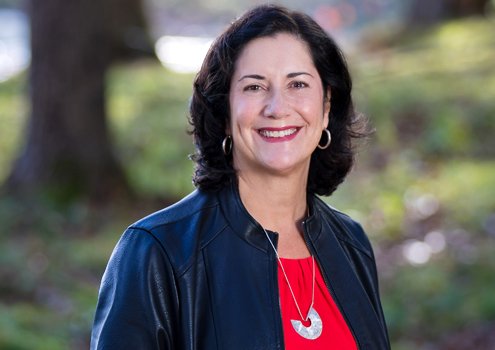Reading time: About 2 minutes
Sue Murtagh says she lost a lot of time because she felt that if she couldn’t be an amazing writer, it would be a waste of time to even try….
Sue Murtagh lives in Halifax, Nova Scotia. She is a graduate of the Alistair MacLeod mentorship program (Writers’ Federation of Nova Scotia) and the Humber School for Writers. Her writing has appeared in The Nashwaak Review, Grain, carte blanche, the Humber Literary Review, The New Quarterly, yolkliterary.ca, and The Walrus. Nimbus Publishing/Vagrant Press published her debut short story collection, We’re Not Rich, in October 2024.
I was excited to talk to Sue about how she approaches writing.
Q. Roughly how much time do you spend writing every day?
When I am working on a project, I spend one to three hours on my writing. But during crunch time for We’re Not Rich, I worked on the book for three to five hours, about five days a week.
Q. What’s a simple activity or habit that makes you a better writer?
Reading widely, mostly fiction but also news and current affairs.
Q. What interferes with your writing?
The better question is, who interferes with my writing? The answer to that question is – me. For many years, I didn’t write because I felt that if I couldn’t be an amazing writer, it would be a waste of time to even try. It was a very self-defeating attitude, which took time and life experience to undo.
Q. How do you persuade yourself to sit down to write on days when you really, really DON’T feel like doing it?
I set a timer. Everything I have written and published has been created in half-hour increments. I use the focus session timer on my laptop, put on headphones and crank up the classical music. After the first half-hour, I take a break and put the timer on again. Here is a great tip for procrastinators— limit yourself to fifteen minutes or a half hour. In other words, no matter how well those minutes go, stop. And do this again the next day, and the next until you are actually looking forward to your writing session. I did this, and graduated to my current “half-hour plus” method.
Q. Is there a particular motto or saying that you’ve found helpful for writing?
I like the old standard advice about spewing out the words, and cleaning them up later. The most interesting material comes from the nonjudgemental word dump. Some awful material too!
Q. Which stage of the writing process do you enjoy the most: researching, writing or editing/rewriting and why?
I enjoy the editing/rewriting very much because, in a way, the pressure is off, and my mind is running wild, loose, and free. I can see and play with the depth of possibility in the original material. And sometimes, I realise that what I thought I was writing about is not what I am writing about at all. And then it can become very strange and interesting.
Q. What’s the best book you’ve read (either fiction or non) in the last five years?
I can’t choose just one. Off the top of my head, I’ve recently loved: Held by Anne Michaels, Animal Person by Alexander MacLeod, anything and everything from Claire Keegan, Things That Cause Inappropriate Happiness by Danila Botha, So Long, See You Tomorrow by William Maxwell, What Are You Going Through by Sigrid Nunez, Trespasses by Louise Kennedy, Caught by Lisa Moore, everything by Elizabeth Strout, Actress by Anne Enright. Then there’s Lincoln in the Bardo by George Saunders, Milkman by Anna Burns, Girl, Woman, Other by Bernadine Evaristo. Alice Munro, Carol Shields and Margaret Atwood have all been important in my reading life. I also read story anthologies because I’m very interested in the depth and breadth of possibility in the art of the short fiction, and I try to read several short stories a week.
Q. What book are you reading right now?
I’m reading Fugitive Pieces by Anne Micheals and Death by a Thousand Cuts by Shashi Bhat, and loving both.
Q. What do you think is the biggest misperception that new writers have about the act of writing?
I think that many of us, when we start out, believe that inspiration will and maybe should, drive our writing. The reality is that sometimes/often/mostly, we just need to sit down and begin, and that our best ideas will come with time and work.
You can learn more about Sue’s new book on her publisher’s website.


